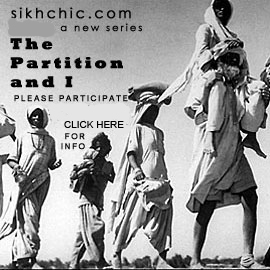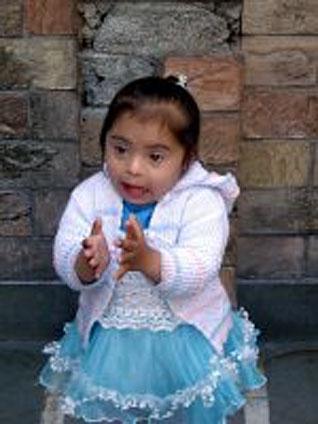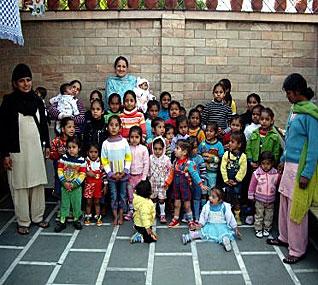Archived_Member16
SPNer
Shining a light on honour killings' dark corner

HANDOUT, VANCOUVER PROVINCE/THE CANADIAN PRESS PICTURE ARCHIVE (left), FACEBOOK
Amandeep Atwal, left, was killed by her father; Aqsa Parvez's father and brother await trial in her death.
One Canadian expert on honour killings believes mental illness may play a role
July 25, 2009 - THE STAR, Toronto
Daniel Dale
STAFF REPORTER
We are shocked, naturally, when it is alleged that honour killings have occurred in Canada. They seem alien, inaccessible, at odds with everything we know about our country. How could a primitive thing like that happen in a progressive place like this?
Curiously, the very cultural permissiveness that makes such crimes so jarring may help explain what leads to their occasional perpetration in North America and Europe.
Honour killings, as the four Kingston canal deaths may or may not have been, are those committed against females whose suspected social transgressions are perceived to have shamed family members, usually males. Liberal societies provide opportunities for social experimentation that may not exist in some immigrants' native lands.
"It's easier for women to say, `Maybe I'll live by myself,' or `Maybe I'll live with another woman,' when they're not in some of the countries that they're coming from," says Marianne Mollmann, advocacy director for women's rights at Human Rights Watch.
"The decision to not conform to the gender role you're supposed to play, that's what often leads to violence within the family. Where there are more opportunities for that, that could create a situation of abuse. But it's just so hard to say."
Where honour killings are concerned, it is hard to be definitive about much. Nobody knows how many occur each year, though they certainly number in the thousands; statistics are spotty, the motivations of perpetrators impossible to comprehensively catalogue.
Kingston police would not say why they have charged the father, mother and brother in the deaths of three Montreal teenage girls. Chief Stephen Tanner said the behaviour of one or more of the girls may have been a factor.
Honour killings occur for a variety of reasons. A 2005 Cairo Association of Legal Aid for Women paper discussed cases in which women were killed for becoming pregnant outside of wedlock or through incest, for committing adultery, or merely for being the subject of community gossip.
The killings occur most often in Muslim-majority countries in the Middle East, North Africa and South Asia. Islam does not sanction them, however, and non-Muslims also commit them.
In 2005, a Christian Palestinian man killed a daughter who wanted to marry a Muslim. In 2003, the Sikh father of British Columbia's Amandeep Atwal, 17, killed her when he learned she was dating a white boy.
The father and brother of the late Mississauga teen Aqsa Parvez, 16, are awaiting trial for her 2007 strangulation death. Parvez, friends have said, refused to accept her family's demand that she wear the hijab. However, other friends dispute the allegation.
Honour killings tend to occur in communities "that control every aspect of women's lives, including their body, speech and behaviour," says Lindsay Mossman, an Amnesty International Canada campaigner for women's human rights.
Ill-informed religious zealotry animates some "honour" murderers. Some perpetrators are encouraged by cultures that tolerate or encourage their violence. And in some countries, honour killing is legitimized by sexist law. Under Iraq's penal code, for example, an "honour" defence can reduce a prison sentence from life to one year.
Culture and law, however, cannot be solely blamed for the phenomenon. The great majority of residents of patriarchal societies with lenient laws do not kill. Amin Muhammad, a Memorial University of Newfoundland psychiatry professor who has studied the relationship between honour killings and mental health, says he believes some honour murderers have undiagnosed mental illnesses.
"We have found psychopathic traits in people who are perpetrating this crime," he says. "You know that mental illness is a taboo, a stigma, here also; people from that part of the world, they don't approach a mental health specialist."
Alia Hogben, executive director of the Canadian Council of Muslim Women, says the question of whether the Kingston murders were prompted by honour concerns should not distract from the basic facts of the case.
"Whatever the rationale is," she says, "whether they think they're doing it for the honour of their family, or because they're jealous, or because they want to control the women – all that becomes, of course, interesting to discuss. But it shouldn't take away from the focal point, the fundamental issue: that women were killed."
source: TheStar.com - Canada - Shining a light on honour killings' dark corner

HANDOUT, VANCOUVER PROVINCE/THE CANADIAN PRESS PICTURE ARCHIVE (left), FACEBOOK
Amandeep Atwal, left, was killed by her father; Aqsa Parvez's father and brother await trial in her death.
One Canadian expert on honour killings believes mental illness may play a role
July 25, 2009 - THE STAR, Toronto
Daniel Dale
STAFF REPORTER
We are shocked, naturally, when it is alleged that honour killings have occurred in Canada. They seem alien, inaccessible, at odds with everything we know about our country. How could a primitive thing like that happen in a progressive place like this?
Curiously, the very cultural permissiveness that makes such crimes so jarring may help explain what leads to their occasional perpetration in North America and Europe.
Honour killings, as the four Kingston canal deaths may or may not have been, are those committed against females whose suspected social transgressions are perceived to have shamed family members, usually males. Liberal societies provide opportunities for social experimentation that may not exist in some immigrants' native lands.
"It's easier for women to say, `Maybe I'll live by myself,' or `Maybe I'll live with another woman,' when they're not in some of the countries that they're coming from," says Marianne Mollmann, advocacy director for women's rights at Human Rights Watch.
"The decision to not conform to the gender role you're supposed to play, that's what often leads to violence within the family. Where there are more opportunities for that, that could create a situation of abuse. But it's just so hard to say."
Where honour killings are concerned, it is hard to be definitive about much. Nobody knows how many occur each year, though they certainly number in the thousands; statistics are spotty, the motivations of perpetrators impossible to comprehensively catalogue.
Kingston police would not say why they have charged the father, mother and brother in the deaths of three Montreal teenage girls. Chief Stephen Tanner said the behaviour of one or more of the girls may have been a factor.
Honour killings occur for a variety of reasons. A 2005 Cairo Association of Legal Aid for Women paper discussed cases in which women were killed for becoming pregnant outside of wedlock or through incest, for committing adultery, or merely for being the subject of community gossip.
The killings occur most often in Muslim-majority countries in the Middle East, North Africa and South Asia. Islam does not sanction them, however, and non-Muslims also commit them.
In 2005, a Christian Palestinian man killed a daughter who wanted to marry a Muslim. In 2003, the Sikh father of British Columbia's Amandeep Atwal, 17, killed her when he learned she was dating a white boy.
The father and brother of the late Mississauga teen Aqsa Parvez, 16, are awaiting trial for her 2007 strangulation death. Parvez, friends have said, refused to accept her family's demand that she wear the hijab. However, other friends dispute the allegation.
Honour killings tend to occur in communities "that control every aspect of women's lives, including their body, speech and behaviour," says Lindsay Mossman, an Amnesty International Canada campaigner for women's human rights.
Ill-informed religious zealotry animates some "honour" murderers. Some perpetrators are encouraged by cultures that tolerate or encourage their violence. And in some countries, honour killing is legitimized by sexist law. Under Iraq's penal code, for example, an "honour" defence can reduce a prison sentence from life to one year.
Culture and law, however, cannot be solely blamed for the phenomenon. The great majority of residents of patriarchal societies with lenient laws do not kill. Amin Muhammad, a Memorial University of Newfoundland psychiatry professor who has studied the relationship between honour killings and mental health, says he believes some honour murderers have undiagnosed mental illnesses.
"We have found psychopathic traits in people who are perpetrating this crime," he says. "You know that mental illness is a taboo, a stigma, here also; people from that part of the world, they don't approach a mental health specialist."
Alia Hogben, executive director of the Canadian Council of Muslim Women, says the question of whether the Kingston murders were prompted by honour concerns should not distract from the basic facts of the case.
"Whatever the rationale is," she says, "whether they think they're doing it for the honour of their family, or because they're jealous, or because they want to control the women – all that becomes, of course, interesting to discuss. But it shouldn't take away from the focal point, the fundamental issue: that women were killed."
source: TheStar.com - Canada - Shining a light on honour killings' dark corner










